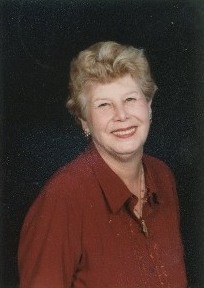MLC: Do you remember the first mystery you ever read? If so, what was it, and what pulled you into it?
AUTHOR: Agatha Christie’s Murder in Mesopotamia. I was pulled in by the setting because I am an archaeologist with vivid memories of my junior year in the Middle East (Israel). That was the year I got hooked on archaeology for the first time. I kept reading because the story was a “locked room” mystery with compelling characters and a fascinating twist at the end.
MLC: When did you first decide you wanted to write a mystery, and what led you to that decision?
AUTHOR: I began my first mystery Bound for Eternity while I was writing up the non-fiction account of our Egyptian mummy project at the University of Illinois. The setting (for both my novel and the real-life project) was an attic museum with no climate control, too many artifacts, and broken windows that allowed pigeons to fly in and out and leave deposits on our statutes. I realized that this derelict museum was a unique and perfect setting for a murder. The museum is also a great example of a setting that becomes a character in the mystery.
MLC: Do you write in any other genres? If so, which ones?
AUTHOR: Non-fiction. I write articles and occasional books on archaeological science and ancient technologies (e.g. how to make prehistoric cooking pots or stone figurines).
MLC: Which comes first for you, the plot or the characters?
AUTHOR: Plot, usually. I have to have at least a thread of a plot in mind before I can choose characters and setting. I am currently working on a historical mystery set in Prohibition era Illinois.
MLC: When you are all wrapped up in the story, do you feel like you could solve the crime, or maybe even solve all the world’s mysteries?
AUTHOR: Yes, to some extent, because I have to immerse myself in my hero’s world and point of view.
MLC: Do you write every day, or what kind of a schedule do you have? Do you write full-time, or do you have a “day job”?
AUTHOR: I have a day job as an archaeological scientist at the University of Illinois. Fortunately, this is a part-time job, allowing me some time to write. My writing schedule is erratic—mostly late afternoons and weekends. Having said that, I’ve discovered it is important to write several times a week or I lose track of where I am in the manuscript!
MLC: Other than your writing, what do you enjoy doing? What is the most important thing to you in your day-to-day life?
AUTHOR: I enjoy watercolor painting, cooking, reading mysteries and archaeology articles, and hiking.
MLC: Who are your favorite mystery authors? Do you try to emulate them in your own writing?
AUTHOR: Julia Spencer-Fleming, Barbara D’Amato, Nancy Pickard, Ken Follett, Steven Saylor, Molly MacRae, Arianna Franklin, and Ellis Peters. I do try to emulate features of each of my favorite authors, for example the way D’Amato incorporates technical information seamlessly into her plots and the complexity of Spencer-Fleming’s characters.
MLC: In your present book, is this part of a series, or is it a standalone book?
AUTHOR: My current book (the historical I mentioned above) is the first of a new series.
MLC: If you are doing a series, do you see an end to it sometime, or do you plan to go on for several years with it?
AUTHOR: The Lisa Donahue series (currently four mysteries) will have at least two more novels, one set in Italy and one set in Illinois. I am mulling over how to make the last one overlap with the historical novel by having Lisa stumble upon historical clues while solving a modern mystery.
MLC: Do your characters ever drive you a bit crazy by going off in their own direction? If so, how do you rein them in, or do you just let them run off on their own?
AUTHOR: I enjoy digressions, so I let them run amok and then rein them in so I can stick to my plot. Digressions can produce interesting plot twists, but only up to a point or you lose the thread of the story. I do like the fact my characters “talk” to me in my head. It’s like having imaginary friends who always travel with me.
MLC: Do you pattern your sleuths after yourself or someone you know? If so, do you let that person know they were your “pattern”?
AUTHOR: Lisa Donahue is definitely a lot like me, but she is growing in directions I did not expect and her life does not parallel mine (she is quite a bit younger as well).
MLC: How long did it take you to get published? How many rejections did you have to suffer through first? Were you ever tempted to give up? What do you think made the difference when it was accepted?
AUTHOR: I began the first novel around 1995 and puttered at it for about six years. When I finally finished a workable draft, it took me another four years to revise it and find a publisher.
MLC: Do you ever attend any conferences? If so, which ones?
AUTHOR: Yes. I regularly attend “Love is Murder" in Chicago, “Magna cum Murder” in Muncie, IN, “Malice Domestic” in Arlington, VA. I’ve also been to “Bouchercon” twice, and I would like to attend “New England Crimebake” sometime because it is outside Boston, near where I grew up.
MLC: Do you have to promote your own work, or does your publisher do that for you?
AUTHOR: I promote my own work but two of my publishers help by keeping up-to-date Web sites.
MLC: If you have to do marketing, what methods have worked the best for you?
AUTHOR: Mystery listservs (Sisters in Crime, Mystery Writers of America), Facebook, blogs and guest blogs, email-newsletters. I’ve also written several short stories for the ezine Mysterical-E, which helps draw readers to my books.
MLC: Do you have any idea how your book is selling?
AUTHOR: The four books are doing moderately well for small presses.
MLC: What has been the best review you have gotten, and why?
AUTHOR: The reviews by Bill Grescens at the Mississippi Valley Archaeology Center in La Crosse, WI, because he knows my subject matter as well as the mystery genre.
MLC: Have you won any awards, either as an author or for your books? Please tell us about them.
AUTHOR: My first book, Bound for Eternity, was a finalist in the St. Martin’s Press Best First Traditional Mystery contest in 2004.
MLC: Is there any one certain thing that a reader has written to you that made you just want to jump up and shout “Yes!!!!”?
AUTHOR: When someone wrote I had wrecked his sleep because he stayed up late reading The House of the Sphinx!
MLC: What is your next project, and when will it be out?
AUTHOR: The historical novel, tentatively titled The Bootlegger’s Nephew. I don’t know when it will be out because it is not yet submitted…
MLC: If you could write anything at all, ignoring what editors and publishers say they want, what would it be?
AUTHOR: Novella-length mystery stories. I tend to write shorter than the 65,000 to 75,000 words that most publishers ask for. I think the e-book revolution will make room for more stories of different lengths because the consumer is not measuring the width of a book spine on a shelf.
MLC: Do you have any words of wisdom for aspiring mystery authors?
AUTHOR: Never give up, and while it’s good to accept criticism, never forget that it is YOUR work and you make the final decision about your writing—the one you have to live with.
MLC: Do you have any teasers for your readers and fans about the next book?
AUTHOR: My new novel features a middle-aged physician/amateur archaeologist with a German wife and a flapper daughter in 1923 central Illinois.
MLC: If a genie suddenly appeared and said they would grant you just one wish for your books, what would you wish for?
AUTHOR: That each one would be the best writing I am capable of—with no typos or other mistakes.
MMLC: Please give us your Web site url and your e-mail address where people can contact you.
AUTHOR: The Web site is
www.sarahwisseman.com
My e-mail address is
suwissem@gmail.com.
MLC: Thank you so much for giving us a little glimpse into your books and your life. We look forward to a lot more books from you.

